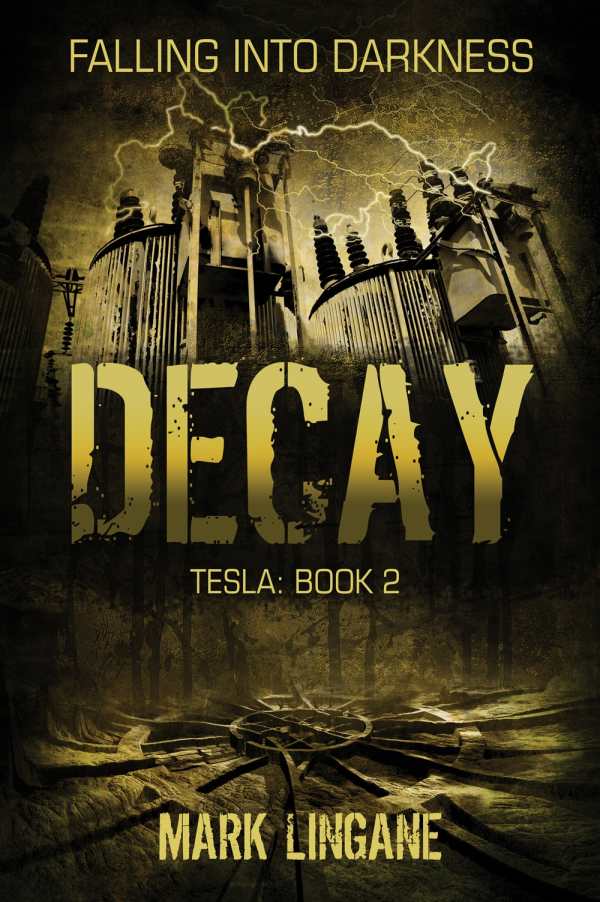It looks like you've stumbled upon a page meant to be read by our code instead of viewed directly. You're probably looking for this page.
Decay
- 2014 INDIES Finalist
- Finalist, Science Fiction (Adult Fiction)
This steampunk thriller series continues with humor, energy, and air-scorching speed.
In Decay, the second book in Mark Lingane’s YA steampunk Tesla Evolution series, the teenage heroes and their mentor, Nikola, are in danger again as their city is attacked by enemies both outside and inside the Steam Academy’s city walls.
Written with verve and wit, packed with action and authorial legerdemain, Decay follows Sebastian and his friends as they try to reclaim their pre-cyborg-war city, the Steam Academy, and their daily lives. Sebastian is still intent on finding his mother; Melanie is enjoying her relationship with boyfriend Gavin, but missing the combat training area; and Isaac is smitten with the daughter of a refugee family. Thousands of strangers from outlying areas have come to the Academy for safety; with them arrive the seeds of an insurrection, led by a woman whose faith clouds her mind. Nikola grows weaker from his near-daily contact with his protégé Sebastian and other male students, who are called teslas for their ability to manipulate physics. The cyborgs continue their war against the humans, and all too soon, Sebastian and his friends are again fighting for their lives and those they love.
Lingane’s prose style is warm, humorous, energetic, and controlled, a tough job to handle when the pacing moves at air-scorching speed. He has mastered the art of moving a story through action without leaving the reader behind, which makes for pacing that doesn’t seem faster than necessary.
The Star Trek: The Next Generation references to the Borg Collective in Lingane’s cyborg culture are enough to make the connection without overdoing it. The cyborg speech rendered with computer symbols is refreshingly free of stilted delivery, a subtle reminder that many of the cyborgs were once completely human.
Minor problems do exist. Once the major action moves outside the city walls, no one seems to stop for food. There are traveling sections where such breaks could have been mentioned. Active run-and-fight scenes wouldn’t include food breaks, of course, but each character carrying a snack stash would fix this easily. If the characters actively fighting are supported by electromagnetic energy, whether via being teslas or otherwise, a clear example of this would be an innovative way to keep the characters’ energy levels up. Hints are left that this could be the case, but more is needed.
On the author’s website, Lingane calls himself a “rock ‘n’ roll writer.” If this description is meant to imply that he takes elements of more than two genres and melds them into a unique world peopled with familiar and interesting characters (as rock music has done with blues, jazz, country, and other musical genres), it’s right on target. Just as a skilled juggler would do with a trio of balls, Lingane keeps the pacing, characterization, and story moving in time with one another, creating well-known patterns with his own personal style.
The Tesla Evolution series began with Tesla, and continues after Decay with Faraday. More books in this series are planned, so those who favor science fantasy but are wary of a full steampunk experience may want to dive into this series now. Decay has a darker, more serious tone than Tesla, but never suffers for it because hope lives in each of the characters. A great read and a writer to watch.
Reviewed by
J. G. Stinson
Disclosure: This article is not an endorsement, but a review. The publisher of this book provided free copies of the book and paid a small fee to have their book reviewed by a professional reviewer. Foreword Reviews and Clarion Reviews make no guarantee that the publisher will receive a positive review. Foreword Magazine, Inc. is disclosing this in accordance with the Federal Trade Commission’s 16 CFR, Part 255.
